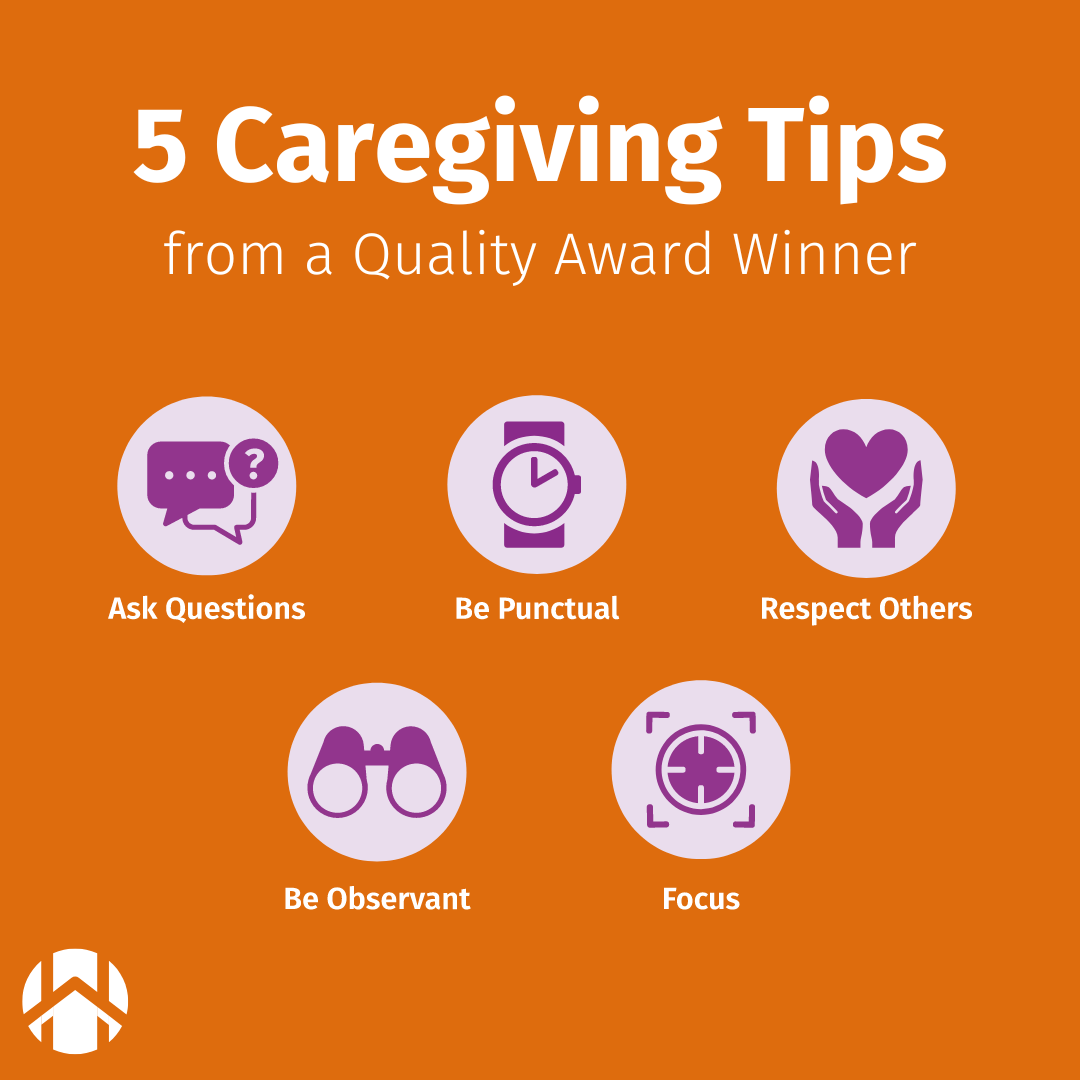Quality Award Winning Caregiver Shares Five Tips to Make Caregiving Easier

Agatha Y. of Skokie IL, learned about caregiving when taking care of sick family members in her native Nigeria. When she came to the United States, she naturally looked to the same kind of work.
“I love helping people. I love caregiving. I do care,” she said.
In-home caregivers are a critical part of our health care system. They don’t need medical training or medical skills, but they help people who are often sick or experiencing some sort of physical or mental challenge.
Imagine a person with serious hip problems, someone who can’t get around unassisted to use the bathroom or fix a meal. A caregiver can come to their home and prepare meals for them and lend them an arm as they walk to the bathroom – this can be a better option than an expensive nursing facility. It allows the client to live at home longer! In other cases, a person may be living with family members and only need someone to stay with them during the day while the family is at work and school.
Many caregivers say that even though caregiving can be hard work – just like doing laundry or fixing meals for your own family can be hard – it feels good to do. Some say it feels more like helping out a friend, rather than a typical job. But Agatha doesn’t see this work as hard.
“I don’t see anything hard in it for me,” said Agatha with a laugh.
Agatha said that she finds taking care of people rewarding. Right now, she is working for a client who can’t get around much. Having help with meal preparation and other household chores allows her to stay at home.
“I like this job,” she said. “I like taking care of people!”
Agatha, who recently received a certificate from the Illinois Department of Aging, recognizing her for quality caregiving for seniors, shares some great tips for caregivers to help make caregiving easier.
Five Tips for Caregivers:
- Ask questions! (How do you want your eggs cooked? Is this water the right temperature? How do you like your shirts folded? Clients appreciate it when you don’t make assumptions.)
- Be punctual! (Agatha said she believes in the value of being highly punctual and even though she takes public transit to her clients, she is never late. Help at Home supervisors can work with you to schedule you with clients that work with your transportation options.)
- Remember to respect their ways of doing things. Remember, you are a guest in their home. (Ok, you aren’t exactly a guest. You are there to work. But it is their home..)
- Be observant and seek a supervisor’s help if needed. (Sometimes observant caregivers can spot problems before they get too serious. An empty pantry may mean that the client is experiencing food insecurity – or that the friend who normally brings them groceries is ill. Bunched up rugs may present tripping hazards, especially as balance gets worse. If unsure of how to handle something, caregivers can always reach out to Help at Home supervisors, who can often make recommendations or find solutions.)
- Focus! Focusing on the client is an important part of the job. Whatever else is going on in your life, while you are with the client, you should be focused on their needs.
